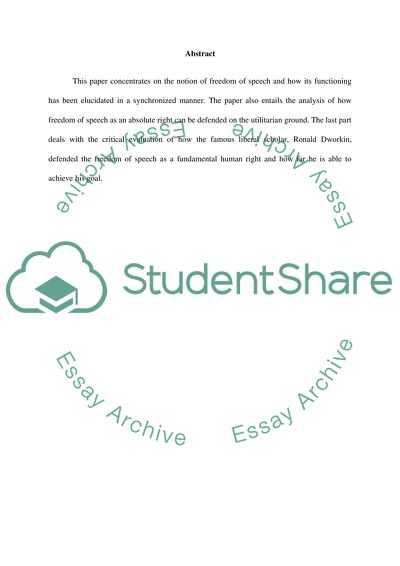Cite this document
(“Can freedom of speech, as an absolute right, be defended on Research Paper”, n.d.)
Can freedom of speech, as an absolute right, be defended on Research Paper. Retrieved from https://studentshare.org/philosophy/1446581-can-freedom-of-speech-as-an-absolute-right-be
Can freedom of speech, as an absolute right, be defended on Research Paper. Retrieved from https://studentshare.org/philosophy/1446581-can-freedom-of-speech-as-an-absolute-right-be
(Can Freedom of Speech, As an Absolute Right, Be Defended on Research Paper)
Can Freedom of Speech, As an Absolute Right, Be Defended on Research Paper. https://studentshare.org/philosophy/1446581-can-freedom-of-speech-as-an-absolute-right-be.
Can Freedom of Speech, As an Absolute Right, Be Defended on Research Paper. https://studentshare.org/philosophy/1446581-can-freedom-of-speech-as-an-absolute-right-be.
“Can Freedom of Speech, As an Absolute Right, Be Defended on Research Paper”, n.d. https://studentshare.org/philosophy/1446581-can-freedom-of-speech-as-an-absolute-right-be.


